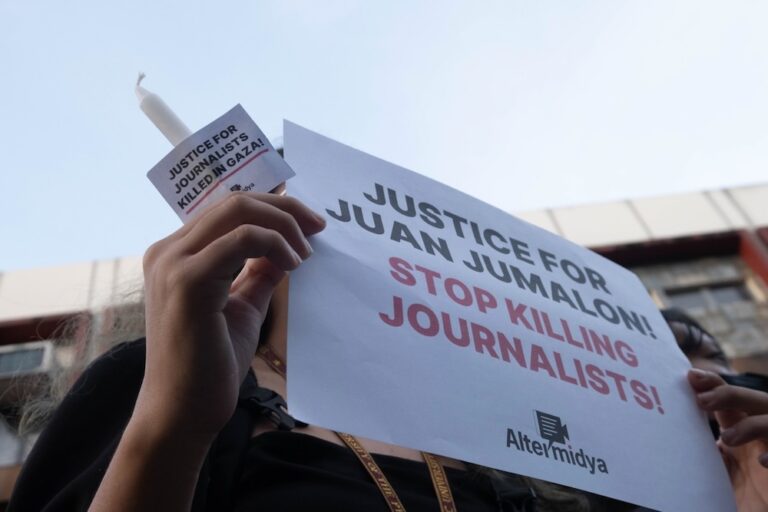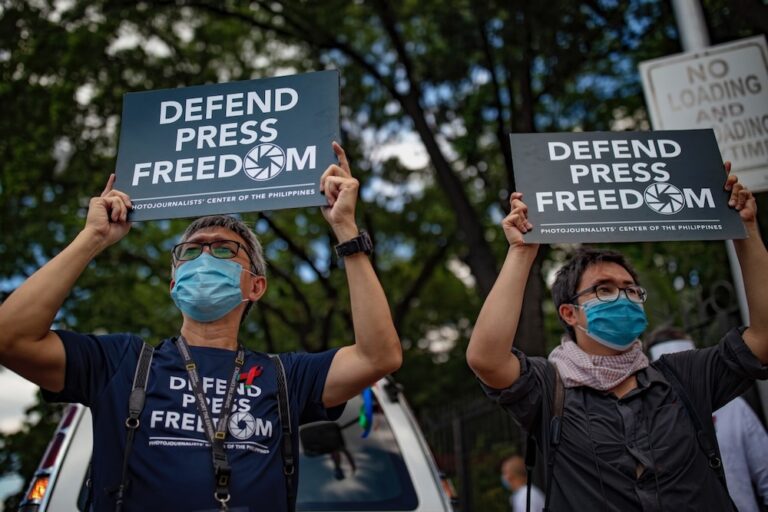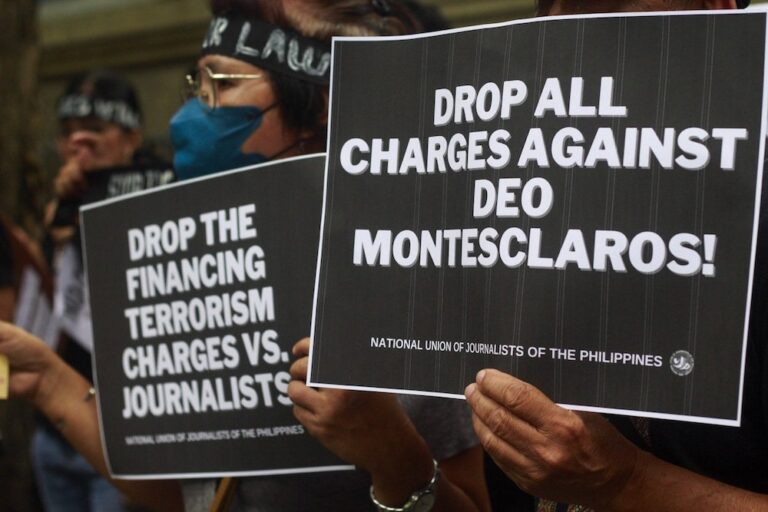(CMFR/IFEX) – The Commission on Elections (Comelec), the government body responsible for running elections in the Philippines, ordered a stop on 16 May 2007 to the “media counts” being conducted by the TV networks GMA-7 and ABS-CBN on the grounds that they were “unauthorized” and “confuse our people.” “The stations should not do it because […]
(CMFR/IFEX) – The Commission on Elections (Comelec), the government body responsible for running elections in the Philippines, ordered a stop on 16 May 2007 to the “media counts” being conducted by the TV networks GMA-7 and ABS-CBN on the grounds that they were “unauthorized” and “confuse our people.”
“The stations should not do it because it confuses our people. It shows trending and we do not allow trending because they might be reporting from places favorable to their candidates of choice,” Comelec chair Benjamin Abalos said at a press conference.
“They (networks) are violating the law. They are not supposed to consolidate results unless they reveal the source, precinct, where it came from. (They have) to stop it because they are not accredited to do the quick count. They are confusing the people. They are not supposed to report the unofficial tally,” Abalos added.
GMA-7, in partnership with computer school AMA, and ABS-CBN, in partnership with Systems Technology Institute (STI), another computer school, did quick counts in the initial stages of the canvassing of votes.
“We will impose sanctions (if they don’t follow), but I don’t think they will disregard our instructions . . . They can be cited for contempt,” Abalos said.
But ABS-CBN director for corporate communications Ramon Osorio said that ABS-CBN had signed a Memorandum of Agreement with STI and Comelec to conduct the media count.
“We have always been very careful in pointing out that what we’re doing is a media count, not a quick count. The NAMFREL (National Movement for Free Elections) does its quick count using the sixth copy of the official election returns. Our media count simply reports the counting as it goes on in real time at designated precincts,” Osorio said.
NAMFREL is the government-accredited election watchdog in the Philippines.
“What we reported on were merely the initial tallies. The updates on the counting were broadcast only during the first 24 hours. I think that’s too short a time to make any sort of trending,” Osorio said.
Malacañang Palace, where President Gloria Macapagal Arroyo holds office, has also protested the quick counts, which placed the opposition bets in an early lead over their administration rivals.
“There is something mesmerizing about figures and numbers being flashed on the screen. It has a hypnotic effect. No matter how you explain the process, no matter how much you qualify the limitations of the operations, mind-controlling still happens,” Gabriel Claudio, Arroyo’s chief political adviser, said in an Inquirer.net report.
Team Unity (TU) spokesman Tonypet Albano also appealed to all networks “not to trend” through counting of votes from Metro Manila and Luzon, known bailiwicks of the opposition. TU is the administration ticket.
Albano said they are warning the public “not to be fooled by the unofficial and marginal results”.
“Why not count Visayas and Mindanao (votes) with (the) same percentage so as to allay fears of cheating when our . . . candidates suddenly surge,” he said.
Genuine Opposition spokesman Adel Tamano, however said that the Comelec ban was an “unconstitutional infringement on press freedom and the public’s right to information”.
“The counts are a matter of public interest and cannot be prohibited on mere suspicion by the Comelec that the count will be used for trending,” he said.
Justice Secretary Raul Gonzalez had earlier said that surveys are banned two weeks before the elections under the Fair Elections Act. Gonzalez said the opposition could use the surveys “to question the results of the (elections)” should it lose.
“Definitely there is trending because if the results are different, they will again march in the streets and will be supported by the Left to create trouble. Instead of a unified nation, we will again have trouble because of the surveys,” Gonzalez said.
Reacting to Goinzalez’s statement, the survey group Social Weather Stations (SWS) said that the justice secretary, a lawyer, “betrays his gross incompetence and ignorance of the law”.
“The provision in the Fair Elections Act (R.A. 9006) that would have banned surveys was declared unconstitutional by the Supreme Court in 2001, and never had a chance to be applied to any election. The Supreme Court decision was in SWS v. Comelec, GR. 147571, 5 May 2001,” SWS said. “The SWS and the entire community of survey researchers deserve an apology from the Secretary of Justice for making such a grossly incompetent statement,” SWS added.


